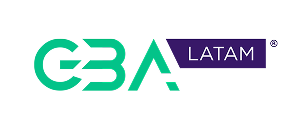The B2C demand generation process is a crucial part of the customer acquisition process in any company. It helps companies and organizations to collect information about their target audience, attract them with content and convert them into customers.
The demand generation process is also known as lead generation or lead nurturing. The main goal of this process is to generate leads for your business so that they can later become paying customers.
What is B2C demand generation?
B2C (Business to Consumer) demand generation refers to the process of identifying, attracting, and nurturing individual leads for a company’s products or services. In a B2C demand generation strategy, companies use a variety of marketing and advertising techniques to attract the attention of consumers and convert them into customers.
Some common B2C demand generation techniques include online advertising, search engine optimization, email marketing, social media, content marketing, and promotions. These techniques are used to attract the attention of consumers, educate them about the company’s products or services, and persuade them to make a purchase.
In B2C demand generation, it is understanding the important needs and desires of consumers and developing messages and offers that resonate with them. Companies must also measure and analyze the results of their demand generation campaigns to identify which techniques are most effective and adjust their approach accordingly.
What is the importance of B2C demand generation?
The importance of B2C lead generation has increased over time as it helps companies increase their revenue and profit margins. Attracting more customers through various marketing strategies such as telemarketing, email marketing, and social media marketing.
Increases sales: Effective demand generation can help a company increase its sales, since consumers who are interested in the company’s products or services are more likely to make a purchase.
Improves brand visibility: Demand generation can also help improve brand visibility in the marketplace. By promoting the company’s products or services through different marketing channels, the company can increase its exposure and attract more potential customers.
Build customer loyalty: Demand generation can also help build customer loyalty. If the company offers high-quality products or services and provides a great customer experience, customers are more likely to return to buy in the future.
Helps segment the market: Demand generation can also help companies segment their target market and better understand the needs and wants of their customers. By better-understanding customers, the company can tailor its marketing and sales strategies to better meet their needs.
Advantages of B2C Demand Generation
B2C demand generation has several advantages over other types of lead generation, such as:
- Target Audience: Focuses on targeting a specific audience rather than targeting everyone in the market. This makes it easier for marketers to better understand their target audience and build trust with them over time. This also helps them improve their marketing strategies and tactics so that they can easily reach more people who are interested in their products/services without spending time or money on them.
- High Conversion Rates: If you’ve worked on B2C lead generation before, then you know how important it is for marketers to get high conversion rates, so they can make more sales from their efforts.
- Helps Businesses Generate Large Numbers of Leads Quickly with Minimal Effort: With the help of B2C lead generation tools, you can easily generate many leads quickly without spending too much time on it. This makes it an effective tool to attract more customers in a short period of time.
- Helps businesses target the customers most likely to buy their products or services: You can target the people who are most likely to buy your products or services based on their demographics.
- Reaching new customers: You can use the tools to reach new audiences that you might not otherwise reach through traditional advertising channels, such as print ads and television ads. These tools include search engine optimization (SEO), social media marketing, and paid advertising on social media such as Facebook, Twitter, LinkedIn, and YouTube.
- Build credibility: When people visit your website after clicking on one of your ads or coming across one of your online posts, they’ll see that you’ve invested time and money in promoting yourself online, which shows them that you care. This way, they are more likely to do business with you in the future because they will trust you more than someone who has no digital presence at all.
Lead Generation Benefits
One of the most important benefits of B2C demand generation is that it helps increase the sales of the company. By promoting your products or services through different marketing channels, you can attract more potential customers and increase the likelihood of making a sale.
This has an impact on improving the visibility of the brand in the market. By promoting the company’s products or services through different channels, the brand’s exposure can be increased to a wider audience.
In a sort of cascading effect, customer loyalty is fostered; If the business offers high-quality products or services and provides an excellent customer experience, customers are more likely to return to purchase in the future.
Finally, it improves profitability, by reaching a broader audience and increasing sales, generating higher income, and improving its profitability.
How can you measure the effectiveness of a B2C demand generation campaign?
The effectiveness of a B2C demand generation campaign can be measured using a variety of metrics and analysis tools. Here are some of the most common ways to measure the effectiveness of a B2C demand generation campaign:
1. Conversions: The number of conversions is an important metric to measure the effectiveness of a demand generation campaign. A conversion can be any action the customer takes, such as purchasing a product, downloading content, or requesting information.
2. Conversion Rate: This is the percentage of website visitors who convert. This metric is useful for evaluating the effectiveness of demand generation efforts and the quality of website traffic.
3. Cost per conversion: it is the amount of money that is spent to obtain a conversion. This metric is useful for evaluating the efficiency of a demand generation campaign and determining whether the costs of the campaign are justifiable.
4. Return on investment (ROI): it is the relationship between the income generated and the costs of the campaign. This metric is useful for evaluating the profitability of a demand generation campaign and determining if the investment made has been effective.
5. Google Analytics: It is a web analytics tool that allows you to measure website traffic, conversion rate, user behavior, and other important data related to the effectiveness of the demand generation campaign.
Summary
B2C demand generation is a key process for companies selling products or services directly to consumers and requires a carefully planned and executed marketing strategy to be successful.
If you are looking for an effective B2C demand generation strategy to boost your business, our team of digital marketing experts have extensive experience designing and implementing B2C demand generation strategies for companies of different sizes and industries.
At GBA Smart Marketing, we understand that each company is unique and requires a personalized strategy that fits its specific needs. For this reason, our approach is based on carefully listening to the needs of our clients and designing customized solutions that allow them to achieve their business objectives.
If you are interested in learning more about our B2C demand generation solutions, do not hesitate to contact us. We will be happy to discuss with you your needs and how we can help you achieve your goals. Don’t wait any longer to boost your business and grow your sales with GBA Smart Marketing!



